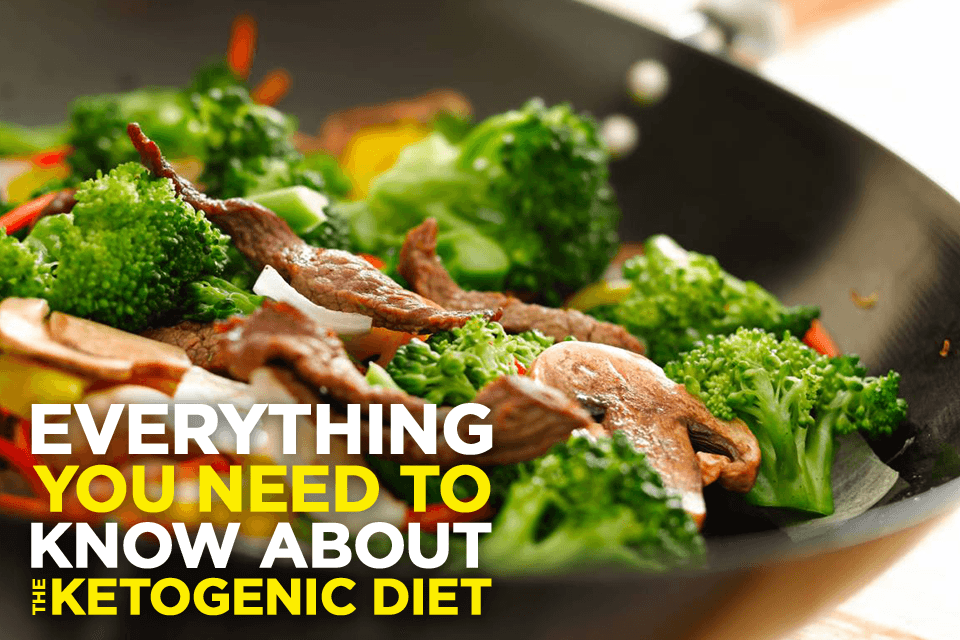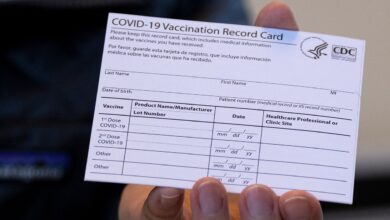
Everything You Need to Know About Ketosis
Everything You Need to Know About Ketosis
Ketosis is a metabolic state in which your body uses fat, rather than sugar, for energy. Your body shifts into ketosis when your blood sugar is low, and the glycogen in your muscles has been depleted. Typically, this happens when you eat a low carb diet or fast from food altogether for a prolonged period. Ketosis is usually heralded as a fast and effective way to lose body fat. Research suggests that ketosis may positively affect health in other ways, as well.
How Does Ketosis Work?
Normally, your body is powered by sugar from carbohydrates, a macronutrient. However, if you drastically limit your intake of carbs, your body will tap into its sugar reserves, called glycogen. Once those are used up, a process that takes about three days, your liver begins to metabolize fat. This process is known as ketogenesis, and it produces ketones. Ketones are byproducts of fat metabolism that your body can use as an alternative form of energy.[1] One technical side note—some components of your body require a very small amount of sugar, but your body can produce that small amount of sugar by itself in a process called gluconeogenesis.[2]
The Ketogenic Diet
For your body to shift into ketosis, you must consume almost no carbohydrates. There are a couple of ways to limit your carb intake. One is through various types of fasting; another is by following a ketogenic diet.
The ketogenic diet is high in fat (70-80% of your daily calorie intake), low in protein (15-20%), and very low in carbohydrates (5-10% with no more than 20-30 grams of carbs per day).[3] There are different variations of the ketogenic diet, but, in general, it consists of low carb vegetables like leafy greens (not starchy vegetables like potatoes and corn) and healthy sources of fat and protein like nuts, seeds, avocados, and olive oil. Depending on preference and dietary restrictions, some people consume eggs, meat, and fish.
How to Tell If You’re in Ketosis
A few telltale signs that your body is in ketosis include a rebound in energy and a lack of appetite. If you need a more definite answer, there are a couple of ways to determine if your body is in ketosis and to what degree. Urine test strips are the most common. They’re widely available and are color-coded to measure the presence of ketones in urine. Tests have also been developed to detect ketosis through exhaled breath.[4]
Health Benefits of Ketosis and the Ketogenic Diet
There are many health benefits of following a ketogenic diet. Putting your body into a state of ketosis may help with neurological disorders and sensory disturbances, abnormal cell development, and even recovery from spinal cord injury.[5][6][7] Most often, though, ketosis is praised for its beneficial effects on weight loss, blood sugar, and overall well-being.
Ketosis and Weight Loss
Because the ketogenic diet causes the body to burn stored body fat, it is effective for promoting weight loss.[8] A 2008 study that was published in the American Journal of Clinical Nutrition found that overweight men who followed a ketogenic diet for a month lost, on average, 12 pounds.[9] Many people in ketosis develop healthier cholesterol levels, too.[10]
Ketosis and Blood Sugar
The ketogenic diet restricts the consumption of sugar, and it’s a helpful way to manage blood sugar levels.[11] In fact, many of the benefits of ketosis and the ketogenic diet are directly or indirectly related to reduced sugar intake.
Persons with type 1 diabetes may be susceptible to ketoacidosis, a potentially serious condition in which the acidity of the blood increases, and should not follow a ketogenic diet or seek ketosis without approval and observation from their trusted natural health care professional.
Ketosis and Healthy Aging
The ketogenic diet can help slow and soften the effects of aging by promoting longevity and strength.[12] Some research even suggests that it improves risk factors for some age-related health conditions.[13]
Ketosis and Brain Health
According to researchers at the Mayo Clinic, a low carb diet supports normal cognitive function.[14] Animal studies suggest that the ketogenic diet may be helpful for neurodegenerative diseases.[15] This is because ketosis protects neurons from oxidative damage in the neocortex, the wrinkled, folded outer layer of the brain.[16] Damage to this area is a characteristic of neurodegenerative diseases.[1]
Ketosis and the Immune System
According to researchers at Yale School of Medicine, ketones support normal immune system function.[17] In an animal study, researchers found that hypersensitivity to allergens was significantly reduced when ketone levels were elevated.[1] Additionally, the diet stimulates the body’s immune cell recycling process to clear out old, worn out cells and make room for fresh, new, robust immune cells.[18]
Are There Side Effects of Ketosis?
It’s important to note that as ketones are produced, the acidity of the blood also increases. For most people, this isn’t an issue. For some people, like those with type 1 diabetes who don’t produce insulin, it can lead to ketoacidosis, a serious condition that can prove fatal. Ketoacidosis can also occur in people with type 2 diabetes, although it is much less common.
Ketosis is an individual experience that can be difficult to begin but the rewards are tremendous. The first two or three days are regarded as the hardest since you’re not eating sugar, but your body hasn’t yet entered ketosis. As a result, most people report feeling hungry, tired, irritable, and slow.[19] Once ketosis kicks in, and they start burning fat, their physical energy and mental clarity return. It’s tough but the juice is worth the squeeze.
If you’re interested in putting your body in ketosis but aren’t sure where to start, check out my vegan, ketogenic fast. I’ve received a lot of positive feedback from people who’ve tried it.
Do you have experience with ketosis? What insight can you provide? Leave a comment below and share your thoughts with us.
References (19)
- Nakamura, S., et al. “Fasting Mitigates Immediate Hypersensitivity: A Pivotal Role Of Endogenous D-Beta-Hydroxybutyrate.” Nutrition & Metabolism 11.1 (2014): 40. Web. 12 June 2017.
- Paoli, A., et al. “Beyond Weight Loss: A Review Of The Therapeutic Uses Of Very-Low-Carbohydrate (Ketogenic) Diets.” European Journal of Clinical Nutrition 67.8 (2013): 789-796. Web. 12 June 2017.
- Volek, J. S., et al. The Art And Science Of Low Carbohydrate Living. 1st ed. [Lexington, KY]: Beyond Obesity, 2011. Print.
- Technical Research Centre of Finland (VTT). “Exhaled breath test can smell ketosis: May help diabetics.” ScienceDaily. ScienceDaily, 23 April 2015.
- Mackenzie C. Cervenka, Sara Hocker, Matthew Koenig, Barak Bar, Bobbie Henry-Barron, Eric H. Kossoff, Adam L. Hartman, John C. Probasco, David R. Benavides, Arun Venkatesan, Eliza C. Hagen, Denise Dittrich, Tracy Stern, Batya Radzik, Marie Depew, Filissa M. Caserta, Paul Nyquist, Peter W. Kaplan, Romergryko G. Geocadin. “Phase I/II multicenter ketogenic diet study for adult superrefractory status epilepticus.” Neurology, 2017; 10.1212/WNL.0000000000003690 DOI: 10.1212/WNL.0000000000003690.
- Mohammed, G. Abdelwahab, Kathryn E. Fenton, Mark C. Preul, Jong M. Rho, Andrew Lynch, Phillip Stafford, Adrienne C. Scheck. “The Ketogenic Diet Is an Effective Adjuvant to Radiation Therapy for the Treatment of Malignant Glioma.” PLoS ONE, 2012; 7 (5): e36197 DOI: 10.1371/journal.pone.0036197.
- Society for Neuroscience. “Low-Carb Diet Speeds Recovery From Spinal Cord Injury.” ScienceDaily. ScienceDaily, 22 October 2009.
- M.R. McKenzie, S. Illingworth. “Should a Low Carbohydrate Diet be Recommended for Diabetes Management?” Proceedings of the Nutrition Society, 2017; 76 (OCE1) DOI: 10.1017/S0029665117000192.
- Johnstone, A.M., Horgan, G.W., Murison, S.D., Bremner, D.M., Lobley, G.E. “Effects of a high-protein ketogenic diet on hunger, appetite, and weight loss in obese men feeding ad libitum.” Am J Clin Nutr. 2008 Jan;87(1):44-55.
- Dashti, H. M., et al. “Long-Term Effects of a Ketogenic Diet in Obese Patients.” Experimental & Clinical Cardiology 9.3 (2004): 200–205. Print.
- Tadahiro Shimazu, Matthew D. Hirschey, John Newman, Wenjuan He, Kotaro Shirakawa, Natacha Le Moan, Carrie A. Grueter, Hyungwook Lim, Laura R. Saunders, Robert D. Stevens, Christopher B. Newgard, Robert V. Farese Jr., Rafael De Cabo, Scott Ulrich, Katerina Akassoglou, Eric Verdin. “Suppression of Oxidative Stress by β-Hydroxybutyrate, an Endogenous Histone Deacetylase Inhibitor.” Science, December 6, 2012 DOI: 10.1126/science.1227166.
- Megan N. Roberts, Marita A. Wallace, Alexey A. Tomilov, Zeyu Zhou, George R. Marcotte, Dianna Tran, Gabriella Perez, Elena Gutierrez-Casado, Shinichiro Koike, Trina A. Knotts, Denise M. Imai, Stephen M. Griffey, Kyoungmi Kim, Kevork Hagopian, Fawaz G. Haj, Keith Baar, Gino A. Cortopassi, Jon J. Ramsey, Jose Alberto Lopez-Dominguez. “A Ketogenic Diet Extends Longevity and Healthspan in Adult Mice.” Cell Metabolism, 2017; 26 (3): 539 DOI: 10.1016/j.cmet.2017.08.005.
- Min Wei, Sebastian Brandhorst, Mahshid Shelehchi, Hamed Mirzaei, Chia Wei Cheng, Julia Budniak, Susan Groshen, Wendy J. Mack, Esra Guen, Stefano Di Biase, Pinchas Cohen, Todd E. Morgan, Tanya Dorff, Kurt Hong, Andreas Michalsen, Alessandro Laviano, Valter D. Longo. “Fasting-mimicking diet and markers/risk factors for aging, diabetes, cancer, and cardiovascular disease.” Science Translational Medicine, 2017; 9 (377): eaai8700 DOI: 10.1126/scitranslmed.aai8700.
- Mayo Clinic. “Eating lots of carbs, sugar may raise risk of cognitive impairment.” ScienceDaily. ScienceDaily, 16 October 2012.
- BioMed Central. “A High Fat, Low Carbohydrate Diet Improves Alzheimer’s Disease In Mice.” ScienceDaily. ScienceDaily, 17 October 2005.
- Kim, D. Y., et al. “Ketone Bodies Are Protective Against Oxidative Stress In Neocortical Neurons.” Journal of Neurochemistry 101.5 (2007): 1316-1326. Web. 12 June 2017.
- Yun-Hee Youm, Kim Y Nguyen, Ryan W Grant, Emily L Goldberg, Monica Bodogai, Dongin Kim, Dominic D’Agostino, Noah Planavsky, Christopher Lupfer, Thirumala D Kanneganti, Seokwon Kang, Tamas L Horvath, Tarek M Fahmy, Peter A Crawford, Arya Biragyn, Emad Alnemri, Vishwa Deep Dixit. “The ketone metabolite β-hydroxybutyrate blocks NLRP3 inflammasome–mediated inflammatory disease.” Nature Medicine, 2015; DOI: 10.1038/nm.3804.
- In Young Choi, et al. “A Diet Mimicking Fasting Promotes Regeneration and Reduces Autoimmunity and Multiple Sclerosis Symptoms.” Cell Reports, May 2016 DOI: 10.1016/j.celrep.2016.05.009.
- “Low Blood Glucose (Hypoglycemia).” National Institute of Diabetes and Digestive and Kidney Diseases. U.S. Department of Health and Human Services, 12 Aug. 2016. Web. 03 Aug. 2017.







